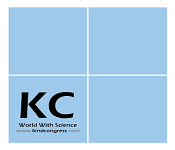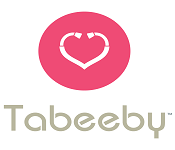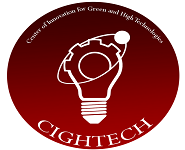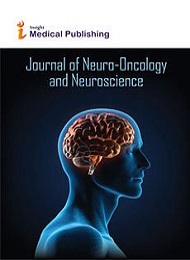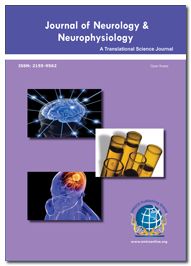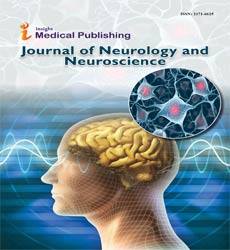Theme: Explore Recent Advancements in Neurology & Neuroscience: A Peek to Future
Neuron 2019
Join us for 2nd World Neuron Congress
Update your skills, enhance your knowledge base, and broaden your horizons—all in one place!
Neurology, Neurological Disorders, Neuro-generative Diseases, Central Nervous System, Brain Disorders, Stroke, Cardiovascular Diseases, Dementia, Alzheimer Diseases, Epilepsy, Neuro-oncology, Neurosurgery, Neuropharmacology, Pediatric Neurology
Date: December 02-03, 2019
Venue: Rome, Italy
NEURON 2019 is a unique program that revolves around recent innovative treatment and prevention of Neurological Diseases.
2ndWorld Neurone Congress 2019 programmed will be held during December 02-03, 2019 at Rome, Italy.
The Theme of the conference is “Explore Recent Advancements in Neurology & Neuroscience: A Peek to Future", which covers wide range of censorious sessions in the field of Neurology, Neuroncology, Neuromarketing, Neurorehabilitation and Imaging.
The main aim of this meeting is to display the foremost current happenings on the neurology and the novel therapeutic options in neurological diseases. World Renowned scholars and young inspired research scientists are about to gather from all around the globe to share their cutting edge researches in the field of neurology, oncology and rehabilitation. The conference proceedings will include symposiums, oral presentations, workshops and poster presentations on the latest innovations in the field of Neurology, Oncology, Brain Stroke, Neurorehabilitation, Neurosurgery by experts.
Why to attend?
2nd World Neuron Congress is among the World's best Scientific Conference to unite globally recognized scholastics in the field of Neurology, Neurovascular researchers, educators, health professionals, professors, academic scientists, industry researchers, scholars from around the globe concentrated on finding a few solutions concerning .Neurological Diseases .
This is the best chance to achieve the feat of witnessing the bundle of researchers from the retouching centres, Universities, and so forth. The Conference will give enough space to dialog, gatherings and workshops with the goal to provide a nearby contact among speakers and guests. Many recognized Neurologists, Neuro specialists' analysts and researchers will participate in this Conference. This 2-day conference will without a doubt advantage and makes ready for the improvement of the world. Comprehensively acclaimed speakers, the latest inquires about and refreshes in Neurology are the key highlights of this occasion.
Target Audience:
- Heads, Deans, and Professors of Neurology departments
- Scientists and Researchers organizers
- Healthcare Professionals
- Doctors
- Medical Colleges
- Healthcare professionals
- Founders and Employees of the related companies
- Clinical investigators
- Hospitals and Health Services
- Pharmaceutical companies
- Laboratory members
- Training institutions
- Support organizers
- Data Management Companies
- Nurse and nursing education institutions
- Neurology Associations and Societies
- Students
- Business entrepreneurs
Track 1: Neuron & Neurology
A neuron or nerve cell is the structural and functional unit of Nervous system. It is an electrically cell that transfers information through chemically and electrically signals only.Synapses are mean to be intermediate connections that help to transfer information from one neuron to another. In animal cells there are different types of functional cells as in sensory neuron,motor neuron,interneuron.
Neurology is the most important part of medical science that is concerned with diseases caused in the nervous system.It also deals with the acute problem related to brain and other parts starting from birth to degeneration of neurons at elderly age.
Track 2: Neurodegeneration and Neuroinflammation
Neurodegeneration refers to the damage that affects the neurons in the human brain,spinal cord and also to the structure and function of neurons that pave the way to the demise of neurons. It ends in diseases that completely destroy the motor neurons, where these neurons are the nerve cells that create the path involved in the electrical impulses from the brain to the spinal cord.
Infections and traumatic brain damages leads to serious injuries to the central nervous system of our body. This injuries lead to inflammation and is known as Neuroinflammation. Chronic inflammations are associated with neurodegenerative diseases. Recently, scientists have found the inflammatory process is being closely linked with multiple neurodegenerative pathways, which are linked to depression.
Track 3: Neurorehabilitation
Neurorehabilitation is a tedious medical process which focuses to provide recovery from a brain and spinal cord, and to cure any functional alterations resulting from nervous system injury.They focus on mainly nutrition,psychological and works with their attitude and skills of of those disabled person and their surroundings. It also motivates them to rebuild self-esteem and a positive mood so that they can adapt to the new challenges and become more charged up for successful and committed community reintegration.Now,its a mixture of traditional medicine and precise science.
Track 4: Neuro-Oncology
Neuro-oncology is a term that is related to the brain tumour and other kind of tumours in nervous system.Tumours can grow by primay and metastatic stage of central nervous system. Chemotherapy , radiotherapy are commonly used treatments.Use of advanced imaging techniques, predictive molecular testings,magnetic resonance imaging are most important tools.Primary CNS Tumors,brain and spinal mitases are being treated by modern neurooncology.
Track 5: Neurophysiology
Neurophysiology is widely characterized as the investigation of sensory system work. Its the combination of both physiology and neuroscience that focuses on the physiology and functioning of nervous system by using biological tools.They also plays important role on montoring people who have disorders that are affecting the brain including strokes, dimentia.Clinical physiology deals with the diagnosis and treatment of neurological diseases in two main areas i.e brain and pheripheral nervous system. Neurophysiology is related to electrophysiology, neuroanatomy, mathematical neuroscience and has medical applications in clinical neurophysiology and in clinical neuroscience.
Track 6: Neurochemistry
Neurochemistry deals with study of molecules as in neuropeptides,pshycopharmaceuticals and chemicals like neurotransmitters.Neurochemicals are included like oxytocin, serotonin, dopamine and other neurotransmitter-regulating substances. The wonder of science that creates electric signal which proliferate along nerve cells and the science at the neural connection through synapses are the prime areas and focuses on the effect of neurotransmitters, chemical processes occuring in nervous system.Recently research has been done how post-traumatic stress disorder altering brain.
Track 7: Neuropsychiatry and Mental Health
Neuropsychiatry is the blend of Psychiatry and Neurology that deals with relationship between human behaviour and brain function where in broad overlaps between neurology,psychiatric symptoms of neurological diseases,behavourial neurology and neurophyscology.Clinical neurophysiologist perform intraoperative monitoring,electrodiagnostic,electroencephalography and evoked potentials.
Track 8: Developmental Neurology & Gliogenesis
The developed sensory system appears over the span of embryonic and post-embryonic advancement because of a succession of formative projects that comprise of the beginning of nerve cells and their helping (glia) cells, the relocation of those cells to characterized areas inside the creating sensory tissue, the foundation of associations of those cells to specific target locales, and particular neuron cell passing.
Gliogenesis occurs mostly in adult mammalian brain and glial cells like astrocytes, schwann cells, oligodendrocytes,microglia are generated. In this ability, glial cells offer a couple of functions to both the central nervous system (CNS) and the peripheral nervous system (PNS). Subsequent differentiation of glial cell populations results in function-specialised glial lineages.
Track 9: Cognitive Neuroscience
Cognitive Neuroscience is branch of neuroscience that deals with the scientific study of neural mechanisms and neural manifestations.Ocassionally those conginitive neuroscientists utilize brain imaging methods like PET,SPECT. New brain mapping technology particularly magnectic resonance imaging or functional MRI(fMRT) had allowed reserchers to investigate strategies behind cognitive physiology by observing brain function that how brain enable our mind.Advances in non-invasive functional neuro-imaging and associated data analysis methods focuses on neural bases of human behaviour.
Track 10: Neurogenetic and Neurometabolic Disorders
Neurometabolic Disorders are those disorders that how brain or any other organ of our body function.Neurogenetic diseases are umbrella of chronic diseases that describe brain abnormalities following the changes in genes of the child.This may result in uncontrollable epilepsy or abnormal movements.Brain imaging,Cerebrospinal fluid testing are some for diagnosis treatment.Modern DNA technologies as in next-generation sequencing are tools for the diagnosis of these disorders.
- Alzheimer’s disease (AD)
- Epilepsy
- Multiple sclerosis
- Parkinson’s disease
- Migraines
Track 11: Neuropharmacology
Neuropharmacology invovles from the study of neurons and their neurochemical interactions to entire areas of brain,spinal cord and peripheral nerves.Conduct for the most part centers around the investigation of how medicates that influences human conduct (neuropsychopharmacology) including the investigation of how sedate reliance and dependence influence the human mind. Sub-atomic neuropharmacology includes the investigation of neurons and their neurochemical correspondence with the general objective of creating drugs that effectsly affect neurological capacity.
Track 12: Neurosurgery
Neurosurgery is the surgical specialiy dealing with nervous system which includes brain,spinal cord and nerves of our body.New technologies have been implemented of the major advances in operative neurosurgical techniques like neuromodulation devices,image guidance devices,operating microscopes.Radiation therapy plays a significant role in management of benign as well as malignant diseases.Invasive techniques are being developed to minimize stress on the brain and body suring surgery.Pediatric neurology is also one major of neurosurgery under the age of eighteen.
Track 13: Pediatric Neurology
Pediatric Neurology mainly deals with neurological disorders of children.Neurogenetic infection is the umbrella term of interminable ailments which portray the mind variations from the norm that happen following changes in the qualities of the youngster and these reason certain cerebrum cells to create and work anomalous. On account of neurometabolic irregularities; these clutters result from issues in the chemicals of the body's cells which are either unfit to either utilize nourishments to deliver the vitality the cell needs, or dispose of the breakdown results of the sustenance’s utilized.
Track 14: Neuropathology
Neuropathology plays an important role in characterizing pathogenesis of neurogenerative diseases with expertise in diseases of nervous systems and its coverings. Most work is on the living, however neuropathologists study portion of the brain tissues removed during surgery (biopsies) and brains removed at autopsy for diagnosis.The tissues are examined microscopically for the signs of Alzheimer disease and other dimentia. Epidermal nerve fiber density testing is the most developed neuropathology test till now.
Track 15: Neuroplasticity
Neuroplasitcity refers to the brain's abiltiy to reorganise itself by forming neural connections throughout life which is mediated by neuromodular system.It allows the neuron repairments and can build new connections and can delete old one as well.It includes brain capacity to be shaped or moulded by expreience or simple they are the malleability of neural circuits.Neuroplasticity is the fundamental issue that supports the scientic basic treatment of acquired brain injury and it can be functional or structural plasticity. Neurogenesis and neuroplasticity work together to rewire neural circuitry.
Track 16: Neuroinformatics
Neuroinformatics is now most advance research field in Neurology to identify, analyze, digest, stimulate neuroscience data. This discipline is basically the combination of informatics and brain research. . Neuroscience is rich in diversity, comprising of numerous and different sub-disciplines of neuropsychology and cognitive neuroscience . It can be defined as how information across all levels and scales of neuroscience integrates fitting together data that comes from vastly different timescales.
Track 17: Neurology Education
The reason for this segment is for the development of highest number of care and health for those we are priviledged to serve community.Organization like WFN Education Committee has been facilating program accreditation, co-sponsorship and offering participations related to neurology field.
Summary of World Neuron Congress:
World Neuron Congress is an annual meeting of Neuroscience organizations as well as Neurology committees to discuss the future of the Neurological disorders in terms of collaboration, structures and organizational development.A Neuron disease has become a growing threat, because of the demographic change and the resulting increase in the elderly populations.
Analysis of Neuron Diseases:
Each year 600,000 people are newly diagnosed with the neurological condition. 19% of hospital admissions are for the treatment of neurological problem from a neurologist or neurosurgeon mostly for stroke, epilepsy, dementia, and head injury. Worldwide there is an over 46 million Alzheimer’s patients and in India over 4 million people are suffering with some type of dementia and the number is estimated to rise to about 131.5 million by 2050. Mental health and research on neuropsychiatric diseases were priorities, with more than EUR 280 million invested since 2007. Brain diseases account for 35% of the overall disease burden and the cost European society almost euro 400 billion per year. Neurological and psychiatric disorders affect a growing number of individuals, nearly, one in five Americans in a year and about two billion people globally. According to neurological survey the middle age group (Age 60-69) suffers more due to neuron diseases.
Age wise distribution of neuron diseases:
The market for the neurological disorder drugs has been extensively analysed which is based on their usefulness, effectiveness, sales revenue and also geographic presence. The market size and the forecast in terms of US$ for each disorder, and drug class, distribution channel as well as the geographic regions has been provided for the period of 2016 to 2024. Report on this neurological disorder drugs market also provides the compound annual growth rate (CAGR %) for the each market segment for the forecast period from 2016 to 2024, considering the 2015 as the base year.
Why Rome,Italy?
Rome,city of Love is a sprawling,cosmopolitan city with more than 3000 years of globally influential art,architecture and display.Rome has a way of romancing visitors with its elegant beauty.In recent survery it was been ranked as 3rd most visitng place and popular attraction in the european Union.In every hidden corner and each hidden sites,Rome shows a spell of enchantment.
Major Associations around the Globe:
- Society for Neuroscience
- British Neuroscience Association
- British Society for Neuroendocrinology
- International Behavioral and Neural Genetics Society
- Netherlands Institute for Neuroscience
- UCL Neuroscience
- The brain & behavior research foundation
- Nu Rho Psi
- International Brain Bee
- Federation of European Neuroscience Societies
- American Neuropsychiatric Association
- Brain injury association of America
- Society for Behavioral Neuroendocrinology
- International Behavioral Neuroscience Society
- International Society for Neurochemistry
- Japan Society of Neuro-vegetative Research
- International Brain Research Organization
- International Society for Autonomic Neuroscience
- Society for Social Neuroscience
- Luria Neuroscience Institute
- Neuropathy Association
- Alzheimer's Association
Members Associated with Neurological Researchers:
- Neurologists
- Psychologists
- Neurosurgeons
- Neuro Researchers
- Neuro Engineers
Universities associated with Neuroscience in Globe:
- Cornell University
- University of Cambridge
- University of Oxford
- University of California,Irvine
- University of North Carolina
- PSL Research University
- Indiana University
- Alfaisal University
- Ghent University
- Mansoura University
- King Abdulaziz University
- Sorbonne Paris cite
- Universite de Lyon,France
- University of Munich,Germany
- Heidelberg University,Germany
- Princeton University
- University of Vermont
- VU University Amsterdam,Netherlands
- Harvard University,US
- Stanford University,US
Universities associated with Neuroscience in Europe:
- University College London
- King's College London
- Karolinska institue
- Imperial College London
- Heidelberg University
- University of Edinburgh
- University of Oxford
- University of Zurich
- University of Munich
- University of Barcelona
- Eberhard Karls University,Tubingen
- Utrecht University
Major Neurology and neurosurgery Hospitals around the Globe:
- Centro Medico Teknon,Barcelona
- Medical Center in Solingen,Germany
- Bumrungrad International Hospital
- Ann and Robert H.Lurie Children's Hospital,Chicago
- Abbott Northwestern Hospital,Minneapolis
- University Medical Center Phoenix
- Barnes-Jewish Hospital
- Baylor University Medical Center.Dallas
- World Brain Center Hospital
Major Neurosurgery Hospitals in Europe:
- Klinik Hirslanden,Zurich
- Heidelburg University Hospital
- Centreo Medico Teknon
- Helios Berlin Buch
- Meoclinic Hospital
- Hospital Quiron Barcelona
- HM Hospitales
- European Medical Center
- National Hospital for Neurosurgery and Neurology
Related Societies:
Europe:
Association of British Neurologists, European Federation of Neurological Societies, Brain Research Trust, European Parkinson's disease Association, Turkish Neurological Society, Neurological Society of Serbia, Brain Research Trust, European Academy of Neurology, European Brain Council, British Neuropathological Society, Swiss Society of Neurology, Netherlands Society of Neurology, Scientific Society of Neurologists of the Ukraine, Moldovan Scientific Society of Neurologists, Association of Neurologists in Bosnia and Herzegovina, Bulgarian Society of Neurology, Croatian Neurological Society, Carlo Besta Neurological Institute, Czech Neurological Society, Geogrian Society of Neurologists, German Society of Neurology, Hellenic Neurological Society, Hungarian Society of Neurology and Psychiatry, Icelandic Neurological Society, Irish Institute of Clinical Neuroscience, Israel Neurological Association, Italian Society of Neurology, Portuguese Society of Neurology (Sociedade Portuguesa de Neurologia), Romanian Society of Neurology, All-Russian Society of Neurologists, Neurological Society of Serbia.
USA:
Associations of British Neurologists,European Federation of Neurological Societies,Brain Research Trust,European Parkison's disease Association,European Academy of Neurology,European Brain Council,British Neuropathological Society,Child Neurology Society,American society of Neuroimaging,American Asssociations of Neurological Surgeons,National Neurotroma Society,National society of Genetic Counselers,Internation Brain Injury Association,Congress of Neurological Surgeons,American academy of Family Pschycians,American spinal injury Association,Medical Health Proffesional asociations in Chicago,American associate for neurochemistry,United Council for Neurological subspecialities,Institue of Neurological Disorders and stroke
According to the News from the World of Neurology and Neuroscience -Those anti-inflammatory arthritis drug etanercept (Enbrel) to a 64% reduction in Alzheimer's disease risk so making as brain chips of the Future
Conference Highlights
- Neuron & Neurology
- Neurodegeneration and Neuroinflammation
- Neurorehabilitation
- Neuro-Oncology
- Neurophysiology
- Neurochemistry
- Neuropsychiatry and Mental Health
- Developmental Neurology & Gliogenesis
- Cognitive Neuroscience
- Neurogenetic and Neurometabolic Disorders
- Neuropharmacology
- Neurosurgery
- Pediatric Neurology
- Neuropathology
- Neuroinformatics
- Neurology Education
- Neuroplasticity
To share your views and research, please click here to register for the Conference.
To Collaborate Scientific Professionals around the World
| Conference Date | December 02-03, 2019 | ||
| Sponsors & Exhibitors |
|
||
| Speaker Opportunity Closed | |||
| Poster Opportunity Closed | Click Here to View | ||
Useful Links
Special Issues
All accepted abstracts will be published in respective Our International Journals.
- Journal of Neurology & Neurophysiology
- Journal of Neurology and Neuroscience
- Brain Disorders & Therapy
Abstracts will be provided with Digital Object Identifier by




